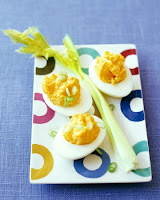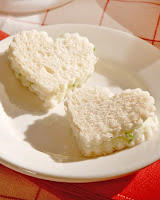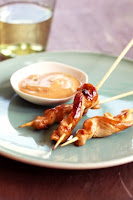It’s been called nature’s penicillin and is at the top of the list for
its curative powers. Hot chicken soup helps clear clogged airways, and
the nourishing broth will give you more energy. And when following Maria's recipe, you will guarantee a quick recovery.
In this recipe, I use, mainly, garlic, onion and ginger. Before cooking, you should know why I chose these 3 ingredients to create my delicious chicken soup.
Garlic ranks as one of the most potent remedies of all time. The most important compound that derives from garlic, is Allicin that provides the greatest reputed health benefits.
As well as having
antibiotic properties, allicin is an excellent anti-fungal and
garlic preparations have been used in folk medicine to treat skin infections such as athlete's foot.
Onions contain a large amount of sulfur and are especially good for the liver.
Sulfur-containing amino acids are found in onions as well and are
called methionine and cystine and, among other things, they are very
good at detoxifying your body from heavy metals. In fact, they are able
to latch on to mercury, cadmium and lead and escort them out of the
body.
Vitamin C, also contained in
onions, is excellent at detoxifying the body and is effective in
removing lead, arsenic and cadmium. So increasing consumption of onions
can help the body to get rid of these harmful metals.
Onion is very good for your heart, it will help:
• Boost beneficial HDL cholesterol
• Thin the blood
• Retard blood clotting
• Lower total blood cholesterol
• Lower triglycerides
• Lower blood pressure
Studies reveal that antioxidants in onions can protect you against
cancer is by reducing the DNA damage in cells caused by free radicals.
Ginger have many medicinal properties such as : anti-emetic/anti-nausea, anti-clotting agent, antispasmodic, anti-fungal, anti inflammatory, antiseptic, antibacterial, antiviral, analgesic, circulatory stimulant, expectorant, hypo-tensive, increases blood flow, promotes sweating and relaxes peripheral blood vessels.
Ginger
is good for your health and has been said by some to be a plant
directly from the Garden of Eden. It is also said that consuming Ginger
before taking a plane flight can prevent motion sickness. It can make
good tea, or you can use it as a spicy addition to almost any recipe.
Ingredients
500g skinless, boneless chicken breast marinated and chopped into cubes.
1 head garlic, sliced
2 medium onions, roughly chopped
20 g fresh ginger, chopped
3 small carrots, roundly sliced
750 ml hot water
Salt and pepper to taste
1 tbsp Olive Oil
Vegetables of your choice*
Directions
Heat a pot, pour olive oil, add garlic, onions, ginger and carrots.
Stir for few minutes, around 5 mns, or until onions are golden.
Add the chicken, keep stirring for 5 minutes until cooked from the outside.
Add the boiled water, salt and pepper.
Cook, on Low heat, for 1 hour or until chicken is cooked through.
* You can add any vegetable you like since the power of this soup is in its three magic ingredients.
Meanwhile, prepare boiling water that you will add to your
This is my recipe for chicken soup, my kids love it, they even like to drink it in a cup with a straw, can you believe it? It makes wonders during flu time!
Bon Appétit! Keep warm and healthy, and don't forget to Like my Facebook page.






















